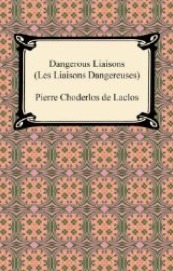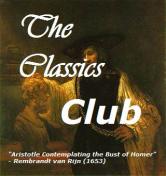
Leave it to Delaisse to organise French February and introduce non-English classic literature that would have taken me ages to discover...
The Dangerous Liaisons by Pierre Choderlos de Lactos is a novel published just before the French revolution, about the immorality of the aristocratic classes, and I think I know it more from the various film adaptations than the book itself.
The novel is written in epistolary form, which just so happens to be my favourite. There is a distance one can take from the events described in the novel, so as not to be completely involved in the highs and lows of the aristocratic life, but on the other hand, one can read what others hear and feel much better (speaking would include more passion and less detail, while describing the same things would be neutral, less emotional...)
We enter the lives of Marquise de Merteuil and Vicompte de Valmont - two members of the high society, bored to death and trying (desperately) to hang on to the power they have against each other. I read the novel in the original, and I've found it to be an extremely good show of how the French language can be so "correct" and "vulgar" at the same time: the nuances, the double-entendres give and take from the beginning, and I thoroughly enjoy reading it.
Other characters join in the plot, and slowly I get the real image of what is happening: this is not a novel about love - it's about power, class hierarchy, fear of attachment and backstabbing whoever stands in the way. I can sense the tragedy lurking in every corner, waiting to happen. Still, I cannot feel anger or disgust towards either of the two main characters - they are the product of their society and, as the Marquise herself says, they are self-made, have managed to stand out in society and will, under no circumstance, yield this "advantage" to anyone. And, while de Lactos was trying to paint the "wickedness" of the aristocracy in vivid colours, I believe it has become a classic because it describes personal feelings (or absence thereof) still found in our society, where we seek to maintain our autonomy to the detriment of close liaisons with people around us.
Another interesting fact about this novel is the date of publication, just before the French Revolution - whether, of course, this novel would have any real influence to the events leading up to the elimination of this unequal lifestyle is to be debated, but I could well imagine the scandal produced, the identification with real people and the discovery of the wall between the servant class/bourgeoisie with the aristocrats just put one more stone towards the final confrontation.
A novel worth reading - in French if you can - more than once, to witness a masterpiece of the limitations of the affairs of the heart...











